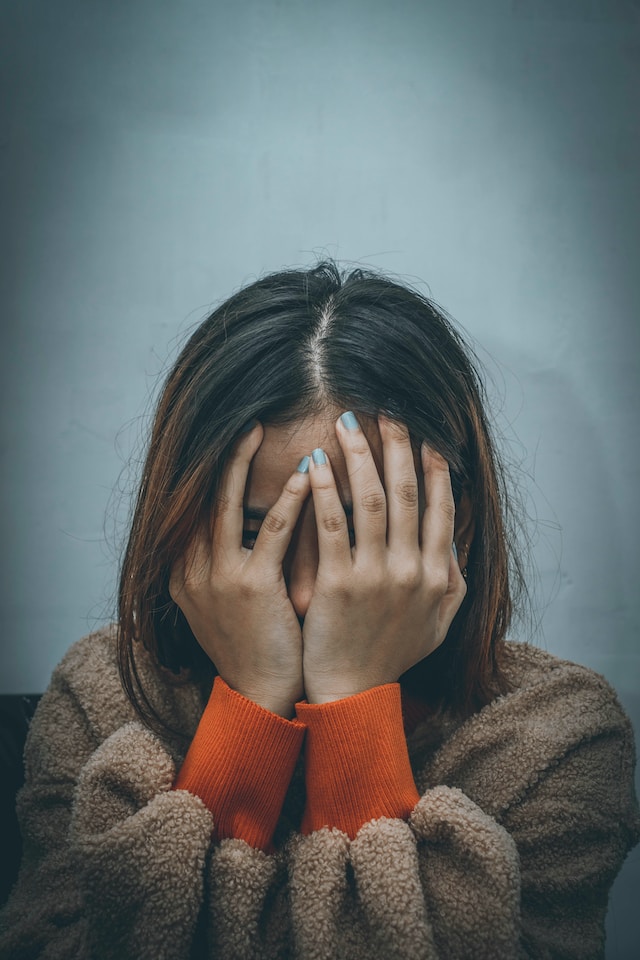
Forced marriage is not only a serious encroachment on the right to self-determination of those affected, but is also a form of violence and oppression that has serious effects on the physical and mental health of the victims. Contrary to popular belief, however, forced marriage is not a phenomenon that occurs exclusively in faraway countries. In fact, the number of girls and young women at risk of forced marriage is also steadily increasing in Austria, especially in Vienna.
BUT WHAT IS MEANT BY A FORCED MARRIAGE ANYWAY?
Forced marriage is considered a violation of human and women’s rights in all countries over the world, and in the case of minors who are married off, it is also a violation of children’s rights. The Universal Declaration of Human Rights, Article 16 (2) states: marriage may only be contracted when the future spouses freely and fully agree.
Accordingly, a forced marriage occurs when the marriage takes place against the will of one or both spouses. In many cases, the persons concerned are pressured or coerced into entering into the marriage. This can be done through physical, psychological or emotional violence, blackmail or intimidation.
Child marriage, on the other hand, is a special form of forced marriage in which at least one partner is under the age of 18. Girls are particularly affected by child marriage, as in some countries they are considered ‘marriageable’ as soon as they start menstruating. The United Nations Children’s Fund (UNICEF) estimates that around 650 million girls and 115 million boys worldwide were married before their 18th birthday.
However, arranged marriages must be distinguished from forced marriages. In this case, the marriage is initiated by parents, relatives or a marriage broker, but is concluded with the full consent of the spouses. In other words, the bride and groom are offered supposedly suitable partners with the aim of marriage, but the future spouses are free to decide for or against the marriage. However, it should not go unmentioned that the line between arranged marriage and forced marriage can be very thin. This is because even a supposedly “arranged” marriage can become a forced marriage if the pressure or influence on the individuals is so strong that their consent to the marriage is no longer voluntary.
THE CAUSES ARE MULTIFACETED
Contrary to popular belief, forced marriage is not tied to specific religions, even if some fathers of families like to use this as leverage. In truth, forced marriage occurs in different social, ethical and cultural contexts all over the world – including in Austria. The general causes of forced marriage are diverse and multi-layered. In most cases, families act in the conviction that they only want “the best” for their children.
A common motive for forced marriage is to control sexuality. Often, parents are concerned with ensuring that their daughter is married off as a virgin and kept away from a lifestyle they perceive as harmful, thereby safeguarding the family’s honor. Sometimes families are also trying to “prevent” an undesirable sexual orientation or sexual identity. They want to ensure that their daughter or son leads a “decent” life.
In some cases, marriage to a (related) person from the country of origin is also intended to strengthen or maintain ties to the old homeland.
Moreover, a forced marriage can also take place for economic reasons. In some regions, marriage is a way to improve the social and economic status of the family. Often, a dowry is also paid to the parents, which can ensure the survival for the rest of the family. Another reason may be to obtain citizenship or the right to reside in another country.
EFFECTS OF FORCED MARRIAGE
Forced marriage is a cruel practice that, in most cases, targets young women and girls and changes the lives of those affected forever. Often the girls and young women experience physical, sexual and/or domestic violence within the forced marriage. This, in turn, can have negative consequences on their physical development as well as lead to severe trauma and long-term psychological disorders, such as depression, anxiety disorders, and suicidal ideation.
Another effect of forced marriage is the restriction of life and educational prospects. Trafficked persons can be forced to drop out of school or vocational training, which further restricts their freedom of movement and deprives them of the chances of a successful career and the associated financial stability and independence.
Forced marriage also leads to significant restrictions on the personal freedom of girls and young women. They have no say in family planning and are often forced to submit to the wishes of their family and husband. The decision as to whether, when and how many children they have is not theirs to make. It is also often seen as the wife’s duty to be sexually available to her husband at all times. Rape within a marriage is common and contraceptives are often not accessible, increasing the risk of unwanted pregnancies. For young girls in particular, early pregnancy can pose a deadly risk and may permanently impair their health.

THE SITUATION IN AUSTRIA
Child marriages and forced marriages take place worldwide, but occur particularly frequently in sub-Saharan Africa and South Asia. Even though forced marriages are a criminal offense in Austria – even if they were contracted abroad – for which a criminal conviction carries a penalty of up to five years’ imprisonment (Section 106/1/3 of the Austrian Penal Code), experts estimate that around 200 girls and young women are affected by forced marriage in this country every year, and the number is rising. However, the number of unreported cases could be significantly higher.
Those affected in Austria are mostly girls with Austrian citizenship who are already living here in the second or third generation. In some cases, however, girls are also brought to Austria from their home country in order to be adopted here by a man living in Austria. Since these girls often have to live in a foreign country without education or language skills, they are in a particularly threatening dependency situation. The victims often find themselves faced with a choice: Either to fulfill the family’s demand or to be expelled by the family.
It is important to emphasize here that in Austria not only the affected persons themselves, but each and every one of us can report a planned or executed forced marriage to the police. Young women especially, who are controlled by their family and have difficulties to contact the police themselves, depend on the support of others to get help. Any person in the victim’s environment can help prevent forced marriages by getting him or her involved with the police, thus saving the victim from further suffering. It is important that victims know that they are not alone and that there are ways to escape from a forced marriage and lead a self-determined life.
COUNSELING AND SUPPORT FOR AFFECTED PERSONS
Are you at risk of forced marriage? Have you already been subjected to a forced marriage? Or do you know someone who has been affected by forced marriage? The following facilities & emergency numbers are available anonymously and free of charge:
Police emergency number: 133
Emergency number for the deaf and hearing impaired: 0800 133 133
Advice hotline: 147
Women’s helpline against violence
Phone: +43 800 222 555
Online counseling: www.haltdergewalt.at (daily 6 p.m. – 2 p.m. and every Friday from 9 a.m. – 2 p.m.)
Mail: frauenhelpline@aoef.at
Website: www.frauenhelpline.at
Women from all countries – Fachstelle Zwangsheirat
Phone: +43 676 3984347
Mail: fachstelle@frauenausallenlaendern.org
Website: www.frauenausallenlaendern.org
Address: Tschamlerstraße 4, 6020 Innsbruck, 5th floor.
Translated by Emily Schiffer
#Menschenhandel #Zwangsehe #Zwangsheirat #Zwangsverheiratung #Österreich #AgainstHumanTrafficking #GegenMenschenhandel #EndExploitation #EndTrafficking #HopeForTheFuture #Österreich
